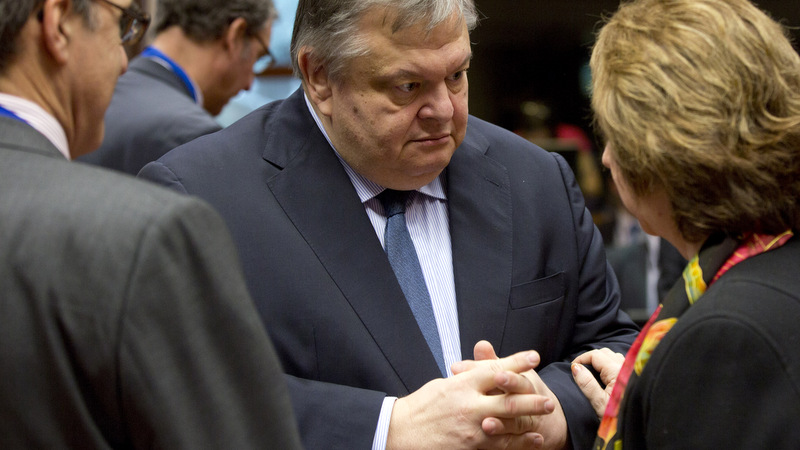
ATHENS, Greece (AP) — European Union government ministers were discussing Friday the progress made in negotiations on a free trade deal with the United States as well as the 28-country bloc’s relationship with Ukraine, in light of the turmoil there.
The EU last year offered Ukraine a free trade and association agreement. EU officials said they estimate the deal could yield 20 billion euros ($27.5 billion) in EU loans and grants for Kiev over seven years.
A last-minute refusal by Ukraine’s now fugitive president, Viktor Yanukovych, to sign the deal that would have brought the country closer to Europe sparked the public protests that spiraled into a crisis that left dozens dead.
The EU’s offer is still on the table, and officials in Brussels have said the deal would provide a boost to Ukraine’s economy, opening the world’s biggest market for Ukrainian exporters while shielding them from full competition for many years.
“This remains a priority for the EU,” said Notis Mitarachi, deputy trade and development minister for Greece, which currently holds the EU’s rotating presidency. He vowed to seek a deal with Ukraine as soon as a new, stable government will be in place in Kiev.
Ukraine’s population is divided in loyalties between Russia and the West, with much of western Ukraine advocating closer ties with the EU while eastern and southern regions look to Russia for support.
Negotiations on the free trade deal with the U.S., in turn, began in July but were partially suspended in January for the EU to hold a three-month consultation over concerns about some of the deal’s proposed rules for investment.
“We do need to step up a gear,” EU Trade Commissioner Karel de Gucht insisted.
A broad EU-US trade deal could provide a boost to growth and jobs on both sides of the Atlantic by eliminating tariffs and regulatory barriers. The trade volume in goods and services between the two economic giants — representing almost half of global output — totaled 800 billion euros ($1.1 trillion) last year.
U.S. President Barack Obama and European heavyweights like German Chancellor Angela Merkel have been pushing for a swift and ambitious free trade agreement. The goal of reaching a broad agreement by the end of the year, however, is considered highly ambitious as significant hurdles remain on issues like agriculture, industry regulation and other fields.

